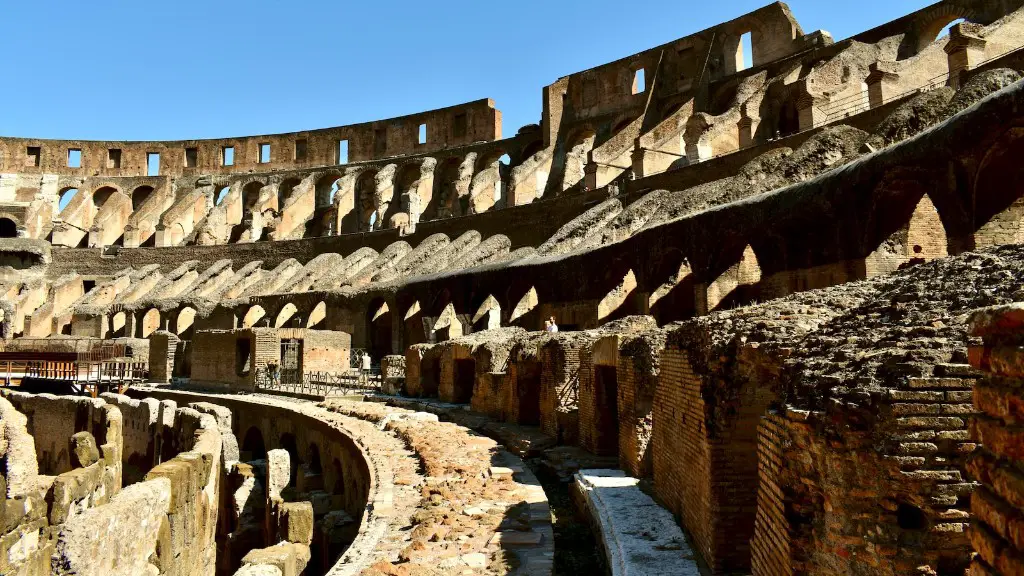Gods & Divinities in Roman Beliefs About Disease
The ancient Romans had their own socio-cultural way of understanding and interpreting the world, and it applied to their beliefs about diseases too. The traditional understanding of diseases in Roman society varied significantly compared to the contemporary understanding in healthcare practices. The Roman population predominantly believed that health issues, including disease, dysfunctions, and illnesses, were the direct result of divine wrath or the malign influence of some powerful being. They believed illnesses were imprinted not just on human bodies but even in the entire community.
In the Roman culture, it was believed that the gods, divinities, and other supernatural beings triggered various diseases and illnesses depending on the nature of the offence that was caused. It was quite common to attribute misfortune to displeasing the gods. Health problems were said to occur as a punishment for disregarding the rules that had been set by the gods. The gods were seen as the supreme arbitrators of justice and the divine world referenced to make sense of mysterious phenomena associated with disease were invoked by the Romans.
A good example of this belief was the case of the divine physician Aesculapius, who demonstrated the ancient relationship between health and the gods. He was a real healer of the gods that had been acknowledged following his healing of Plutus, Zeus’s son. As a result, numerous temples dedicated to Aesculapius were built.
Health & Healing Practices in Ancient Rome
The ancient roman culture had its own healing methods and practices that were employed to treat disease, and other medical issues. One of the most common methods employed was taking herbs and other natural remedies; even the Roman military was known to use these traditional remedies to treat their troops. Additionally, Romans also offered either physical purification or praying rituals involving the gods, or many other offerings, to request the gods to drive away the illness and diseases caused by them.
Rome also had a well-developed healthcare system; it had facilities, guilds, and even physicians who practiced medicine and surgery, but the only remedy regarded as the most effective was the use of prayers and offerings to the gods. Additionally, it was also believed that sicknesses could be caused by negative energy or ‘evil spirits’. Romans consulted priests or magicians to treat diseases caused by the negative energy.
Correlation between Health & Religion in Ancient Rome
In the ancient Roman culture, it was believed that the gods and divinities had immense power over the growth, development, and health of any human being and also the entire community. This connection between health and the gods created a strong relationship with religion. The Romans also attached emotions to illnesses, and as a result, superstitions and rituals were common.
For instance, it was believed that making a sacrifice to an individual god was a good way to cure a specific disease. In the case of a fever, the Romans predominantly believed that the fever had been caused by the god of fever and hence making an offering would be the only way to treat the fever. It was also believed that by pleasing the gods one could gain good health.
Belief in Magic & Supernatural Causes
The Ancient Romans also believed in the magic and supernatural causes of illnesses. They mainly relied on priests and magicians to treat diseases and cure them in case of illnesses and injuries. They had their own traditional set of rituals and spells that were commonly used to drive away the evil spirits causing harm to a person.
The traditional belief in the supernatural causes of disease and magic was so strong that even if a person got ill and was diagnosed with any disease by the physicians, their relatives and friends would still seek to consult the priests and magicians believing them to be the only one with the power to cure the illness.
Malign Influences & Human Errors in Roman Theory of Disease
The Ancient Romans believed that malign influences and human errors could also be responsible for illnesses and other health issues. In such cases, the malign influences were believed to be casted by enemies who tried to cause harm to their opposition. It was believed that these enemies possessed powers to impact the growth and health of the person.
The other two factors that were believed to influence diseases were human errors like inconsistencies in the daily routines and poor diets. It was believed that the malign influences and human errors were two of the most significant causes that triggered health problems hence the Romans extensively relied on traditional healing methods, agronomy, and religion to fix the malign influences, human errors, and any other health issues.
Interpreting Illnesses & Disease in Roman Society
The Roman society attributed physical, mental, or spiritual pain to the outer interactions such as superstitions, religious rituals, morals, and ethics. To make sense of mysterious phenomena related to diseases, the Romans made references to gods and goddesses, malign influences, and human errors. The traditional understanding of illnesses in Roman society evaluated diseases and illnesses based on the overall communal beliefs.
Furthermore, the Roman society employed their distinct social beliefs and practices to try to interpret the cause of illnesses and other health issues to formulate preventive measures, treatments, and cures.
Understanding Disease & Illness in Ancient Roman Culture
It is clear from all the evidence that the ancient Romans had their own distinct understanding of diseases and illnesses. They believed that illnesses were the result of divine wrath or malign influences and that the gods, divinities, and other supernatural beings were capable of triggering various diseases and other health issues depending on the nature of the offence.
The Romans believed in traditional healing methods like using herbs and other natural remedies and praying to the gods to request relief from the illnesses. Additionally, the most common forms of treatment were the use of prayers and offerings to the gods, as well as consulting priests and magicians to treat diseases caused by the negative energy.
The Role of Superstitions, Rituals, & Ethics in Roman Culture
Superstitions, rituals, and ethics also played a significant role in the interpretation of diseases in Roman culture. They saw physical, mental, or spiritual pain as a sign that something was wrong, and the superstitions, rituals, and ethics, were employed to make sense of the mysterious nature of illnesses and diseases.
The Romans believed something was wrong and had to be made right. This was done with the help of traditional healing methods and more commonly with the rituals related to the gods and goddesses of the Roman pantheon. They saw gods as the ultimate source of power, and the ultimate answer to their problems with diseases.
The Influence of Religion & Social Beliefs on Ancient Roman Medicine
The Roman society was heavily influenced by their religion and by the gods, goddesses, and various spirits that were invoked and were seen as the ultimate source of power. To understand and make sense of puzzling illnesses and diseases, the Romans made references to their gods and to the magical forces.
The Ancient Roman culture had a profound belief that illnesses and health issues could be caused by divine wrath or by any other malign influences or human errors. This belief shaped the Roman perception of disease and imposed a distinct approach towards healing and medicine, which then formed the basis of their traditional healing practices.
Conclusion of Ancient Roman Medicine Practices & Beliefs
In conclusion, the Ancient Romans had a vibrant and unique understanding of diseases. They believed that illnesses and health issues could be caused by displeasing the gods or divine wrath, or even by malign influences, human errors, and certain other supernatural sources. In order to make sense of the mysterious nature of diseases, the Ancient Romans resorted to various traditional healing methods and rituals. These practices and beliefs contributed significantly towards the development of traditional Roman healing methods and preventive measures from illnesses.


